The seventh round of peace talks between Nationwide Ceasefire Negotiating Team (NCCT) and Union Peace-making Work Committee (UPWC), after six days of deliberation, from 17 to 22 March, made an abrupt recess and would continue on 30 March, according to the government and NCCT sources.

The sequence or road map according to Salai Liang Hmung of NCCT, who was interviewed by RFA on 23 March, will be the signing of Nationwide Ceasefire Agreement (NCA), drafting of Framework for Political Dialogue (FPD), convening Political Dialogue (PD), calling for a Union Conference to reflect the issues pinpointed by PD, signing of Union Accord, tabling for the endorsement of the Parliament, and finally implementation of the agreed Union Accord.
He further said in the interview that some sticky points like recruitment of the Ethnic Armed Organizations (EAOs) will be discussed at the stage of PD, on how Security Sector Reform (SSR) and Disarmament, Demobilization and Reintegration (DDR) should be implemented. The government side also wanted to include representatives of non-Burman ethnic groups -Taing Yin Tha – at the PD phase, but when asked for specification it still cannot answer. He said the NCCT would normally welcome the move for as an umbrella organization of the ethnic groups, it would be a plus point, but need to know who will represent the government endorsed group.
As the peace talks seem to be making progress, the Burma Army (BA) started its offensive on a lightly guarded Kachin Independence Army (KIA) position in Kachin state.
La Nan, spokesperson of the KIA’s political wing, the Kachin Independence Organization (KIO), told DVB on Sunday that Kachin outposts in Mansi Township between the villages of Madan Yang and Kai Hteik were bombed by two fighter jets at 3:15pm on 22 March following an armed clash nearby the day before.
La Nan, made a remark to VOA on the following Monday the intention of the BA latest assault, as follows:
“Given the fact that we were attacked whenever we held talks in the past, [the Myanmar military] appears to be taking advantage of the current talks in Yangon by invading our small bases. But, the attack hasn’t seemed to disrupt the peace talks.”
The government, according to RFA report of 22 March, said that the military operations were aimed at stopping illegal logging and transportation to China through Sagaing Division, also known as Sagaing Region. The KIA, however, rejected it by saying that their camps are not on the smuggling route.
It seems the BA is escalating its military offensives in Shan and Kachin states, according to TNLA, KIA and Myanmar National Democratic Alliance Army (MNDAA) sources. While Kokang offensive by the BA is meant to prove its military supremacy position and face-saving undertaking to its tarnished ego for losing so many combatants on its side, the recent attacks on KIA position is aimed at gaining more occupation areas and influence, prior to political bargaining at the PD phase.
Nobody knows for how long this BA posture of “state within a state”, will continue, conducting its own affairs, mostly not in line, or even against, the policy of quasi-civilian government of Thein Sein, which from the outset seems to be trying hard to achieve the signing of NCA.
Janet Benshoof, in her article titled “Its time for international community to address Burma’s constitution” argued that the international community acts as if development and engagement alone can secure a democratic future for Burma. She said that this neither serves the people of Burma nor advances the global security sought by the international community.
This fallacy is that justice, democracy, and rule of law can be established in Burma notwithstanding the fact that the 2008 constitution establishing the “Republic of the Union of Myanmar” grants the “Defense Services,” under Commander-in-Chief Min Aung Hlaing, complete and total legal autonomy over its own affairs, as well as immunity for its actions, however criminal or corrupt. The truth is actually quite simple: unless and until the military is placed under civilian control through constitutional amendment, talk of democracy and rule of law in Burma is just that, talk.
A nation’s constitution is usually considered to be a quintessential exercise of sovereignty, and not typically a matter for international action, but just who has sovereign power in Burma? The legal definition of “sovereignty” or of a “sovereign” state requires that the state have complete legal authority over the military and over the constitutional amendment processes. In this case, the “Republic of the Union of Myanmar” does not meet the standard of a sovereign state. (Source: Janet Benshoof – DVB 20 February 2013)
If this is so, Thein Sein regime would need to wrestle back its sovereignty and amend the constitution according to the aspirations of all ethnic groups residing within the boundary of Burma. It can’t possibly allow the BA to sabotage the peace process whenever it feels like it. Thein Sein’s recent interview with the BBC and endorsement of BA leading the country through with its “disciplined democracy” is not going to put his regime in a good stead. Many were openly amazed and even questioned the “self-appointed savior of the nation and champion of democratization process” posture of the military, when the successive military regimes, starting from 1962 military coup, have been the culprit that destroyed the nascent democracy. The benefit of doubts that Thein Sein might be enjoying as a reformer is fading fast, with such statements and that he might be playing “good cop, bad cop” scenario, and in fact working for the military clique to which he also belongs, is gaining more currency with each passing day.
To top this doubtfulness, the Union Peace-making Central Committee (UPCC) is almost identical with National Defense and Security Council (NDSC), dominated by the military. In the UPCC setup, Attorney General and President’s Office Secretary were inserted, while Minister of Foreign Affairs was omitted, which is included in the NDSC line up. However, the members count of eleven is maintained. UPCC makes negotiation policy and decision for UPWC, which negotiates with its counterpart, the NCCT.
Thus, it is of course, not at all clear whether the President is functioning within the capacity of a head of state or leading the NDSC military-dominated setup, when conducting peace negotiation with the EAOs.
According to Myanmar Times report on 23 March, NCCT said it did not have the authority to sign a national ceasefire agreement and that the ethnic groups’ leaders, would call a conference of the armed groups to decide on the matter.
The report said that the reluctance of the EAOs might be the lack of trust.
U Aye Maung, chair of the Rakhine National Party, said: “It seems that ethnic armed groups are taking their time to decide, because [the government] talks peace on the table and fights on the ground.”
“If the Tatmatdaw declared it wouldn’t make any military offensives for maybe one month or two or three weeks and invited all ethnics for political dialogue, then I believe that all would … certainly join the dialogue.”
In the same vein, Roland Watson, who runs “Dictator Watch” website, in his recent article “Burma NCA negotiation update 2” writes:
“In conflict ceasefire negotiations all around the world, if one side attacks again and again, there is – normally, and rightly – no possibility of a ceasefire. For the side being attacked, to agree to any deal is a surrender – to accepting the other side’s right to attack, and even more to signing because the other side has attacked.”
Whatever the case, the issues of federalism, federal union army formation and anything to do with structural change of political system boils down to the need of “constitutional amendment”, or should we call it “constitutional debacle”, which have plagued the country since the independence from the British, in 1948.
This ongoing peace talks might be the best chance to achieve viable solution to this decades-old ethnic conflict. And to do it, the regime only needs to show “political will” by reining in the unruly military, stop the absurdity of lionizing it as a savior, democratic crusader, and should instead listen to the voice of the people and act accordingly. Otherwise, the regime runs the risk of going down the drain for being “birds of the same feather that flock together”.
The contributor is ex-General Secretary of the dormant Shan Democratic Union (SDU) — Editor





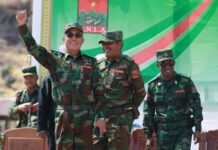
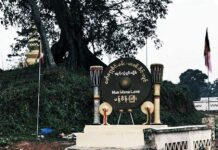
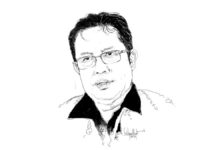
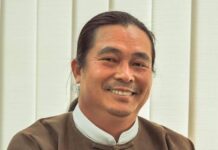
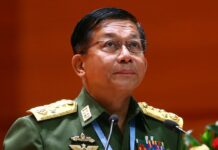






Leave a Comments